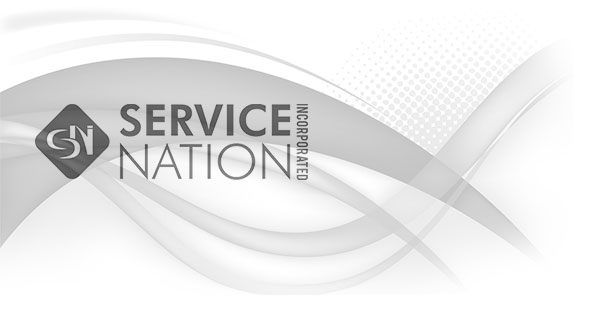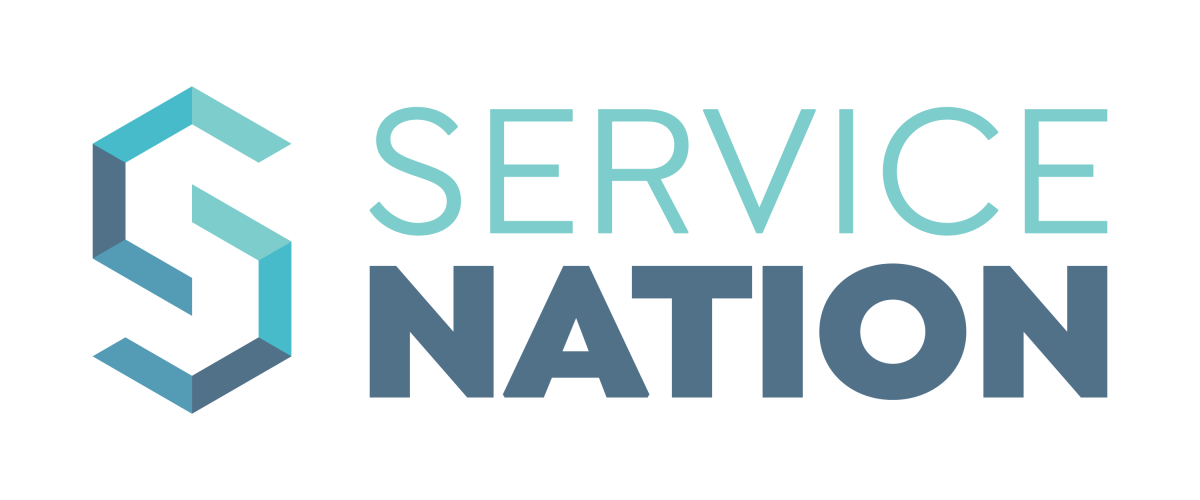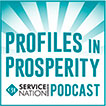David Heimer: So when did you take over the company? When did you purchase it?
Steve Miles: We purchased it in 2014. So almost five years ago. But technically, I guess I started running the company in 1998 when I became General Manager.
David Heimer: You guys were Residential Service Contractor Of The Year, I think it was in the early two-thousands, wasn’t it?
Steve Miles: Yeah, we were Contracting Businesses, Residential Contractor Of The Year in 2006.
David Heimer: Yeah. Very impressive. So, you know, there’s a lot of stuff we could talk about, and not trying to flatter you. I’ve always found you to be a very impressive person. The company that you run is an impressive company. But the thing that I really wanted to talk about was innovation. Because when I think about you, I always think about the new things that you’re trying. If I see you at Service World Expo, it’s like what is the new thing that Jerry Kelly is working on these days? And it’s always something that’s different. It’s always something that’s interesting and most of the time it works. I think a couple of times that you’ve told me about the ones that it didn’t work. But you just pivot and go in some other direction. And so when you think about what differentiates a company, a lot of times, it’s those innovations and it seems like you guys aren’t just innovators, you guys are kind of relentless innovators. You just keep at it. I’d hate to be in a competitive position with you guys because trying to keep up would be hell. So if you think about overtime, what would be an innovation that you think of that was kind of a standout, something that was different that people hadn’t done before. And maybe you’re proud of something like that.
Steve Miles: I don’t know if it’s really an innovation, but when we went to seven days a week, 8:00 AM to 8:00 PM, it was kind of innovative for our market area. Actually, I don’t know that anybody’s still embraced it like we have because we do run full shifts. We’ve got everybody here except perhaps administrative staff, seven days a week, Sunday through Sunday. We’ve got a full office staff to answer the phones, full install staff, we’re pulling permits, and we’re ordering equipment. So we truly run a full seven-day-a-week operation. And like I said, I don’t know industry wide if it is innovative, but for our area, it definitely was. And just making that work was quite a challenge because there aren’t a lot of companies out there to model after to implement it. And probably one of the most innovative things we did was with our service technicians. We run them on a four-day on four day off rotation.
So it’s an eight-day week. And honestly, in my mind, that’s the secret to making it work instead of having a set group of guys work Monday through Thursday and then the other guys work Friday, Saturday, and Sunday, where they will never, ever get a weekend off. Our guys start on a different day each week. So if you start Monday this week, you start Tuesday next week, Wednesday, the week after Thursday. And even though it’s always changing, it gives them predictability and they know when they’re going to be off. So if you, if you map it all out, they get half of every day off. So they have Mondays off, have Tuesdays, half Fridays, have Saturdays, have Sundays and they can plan it out in advance. And initially, it was different and you know, everybody is afraid of change. But I think now that if we tried to change back to the old way, they’d revolt because they’re used to having four-day weekends every week, even if it doesn’t happen to occur over the historic weekend.
David Heimer: Yeah, four days off is nice. It is different, but you can immediately think of advantages to it as a worker. But you know, along with that, you said that you had to change the schedule to support the seven-day eight to eight plan. But if I remember correctly, you had to get the suppliers to support it as well.
Steve Miles: Yeah, and actually that was one of the critical success factors or one of the critical factors to making it a success. We found our supplier, we talked to them, sat down and they were willing to work with us so that we could get equipment seven days a week. So if we sell something Saturday night, we need Sunday morning and we worked out a plan together to make that happen. And it’s worked out very well over the years.
David Heimer: What a competitive advantage to 95 degrees out in the middle of the summer in that nice humid St. Louis weather, you can get my new air conditioner in on Sunday or Saturday. I don’t have to wait until Monday to get it in. Who am I going with? I’m going with Jerry Kelly and to compete with that is hard, right?
Steve Miles: Oh yeah, I don’t know, but I don’t have to compete against myself. I would think so. But what’s really nice. I mean, initially, you talked to people at Service World or the International Roundtables and they’re – all my customers like their weekends. They don’t want me bothering them on the weekend. And we found that actually the opposite is true. They valued going to work and getting paid and not taking a day off. And we found that you know during the busy season, our weekends fill up first before the weekdays too.
David Heimer: Of course yeah, absolutely. So what drives you on getting the ideas and how do you come up with them? That was one that you’ve got, which I think is a great one. But I remember you were talking about a no breakdown guarantee. The private labeling, performance pay, the vehicle wraps that you went through several iterations with, and you kind of led the industry in thinking about having something that was really bright, easy to see. So where do you get your ideas?
Steve Miles: Mostly it’s I hate to say it’s so cliché, but its R and D Robin duplicate. I go to these industry conventions. I go, even outside of the industry, I’m always listening and I’m looking and seeing what’s going on. And if an idea catches my attention, I’ll try and think it through and make it work like Matt Michelle was one of the drivers for the trucks. You know, he put on presentations on mobile marketing, how to turn your truck into mobile marketing, make sure you kind of slant your logo about 15 degrees so it breaks the horizon and all the psychology behind it. So a lot of these ideas aren’t original. I just pick them up and then I implement them and I would say, that’s probably more than innovating we’re good at implementing. I’ve got a great crew. And when I come up with an idea, we’ll try anything for six to eight weeks. If it works, we’ll incorporate it. If it doesn’t work, like you say, we side step and move on and try something else.
David Heimer: Yeah, that was the very next comment that I was going to make, that coming up with ideas is one part of it. But implementing them is maybe the harder component. I mean, you know, there’s a lot of people with a lot of ideas, how many of them get implemented right. But I remember back when you guys started doing private labeling, I was amazed at how quickly you guys turned it around. You joined the RCC, you said you were going to do private labeling and I think you had it up and running in three or four weeks, maybe, which was amazing. So what’s the trick to doing that?
Steve Miles: Oh, making the decision and making it happen. And part of it is the way our company’s evolved. Throughout our 41 year history, we’ve sold at one time or another, almost every brand of equipment out there. And every time for whatever reason, we would leave one brand and go to another, our sales never declined. We kept growing. So we knew intrinsically that people were buying what we were recommending; not buying, whoever was spending the most marketing dollars. So the obvious evolution of that when presented with it by a couple of contractors was yeah, let’s go private label. And we just made the decision and we jumped in with both feet. I think that was the biggest thing. I see too many people out there that are afraid. They don’t want to lose the blue oval or the red bow tie or the orange basketball. They’re just so tied to the identity of the brand they carry; they don’t realize that they’re the driving force. Whether it’s an inferiority complex, I really don’t know what it is, but they are just afraid to go out on their own without that big corporate logo backing them up.
And like I said, we’ve had all the logos, so that didn’t stop us. And we literally just stopped buying the other stuff. I gave my sales guys the new price book and I go, “this is what we’re selling if you want to eat, and you have to sell this.” And they kind of went, “oh, okay, well, since you put it like that.” I’ve seen a lot of companies fail because they might be a train and private label; well the sales guys always default to whatever they know, which is the brand name. So literally sometimes you’ve got to rip the band-aid off and just take that away from them. And then, you know, over the course of six months, two years, they get used to it. And it’s no longer a factor.
David Heimer: So listening to that story and thinking about how you apply that to implementing something that’s new in the company. And by the way, I think so far the best quote is I’ve had all the logos.
Steve Miles: Unfortunately it’s true, we’ve got to experience everything. And after a while, you realize that all the equipment is the same stuff. It’s the same Copeland compressor. It’s the same white Rodgers circuit boards. All the components are the same, the only thing that manufacturers do is maybe make some sheet metal boxes to put it in.
David Heimer: When I listened to that story and I apply it to implementing other things, it seems like you kind of go into this with an expectation that they’re going to get on board and I’m not listening to a lot of dithering and reasons why it won’t work or that kind of stuff. We’re going to try it. We’re going to go forward with this and I’m going to work under the assumption that it’s going to work out really well. Is that the way you do it or is there some other kind of psychology that you apply to get everybody else on board?
Steve Miles: No, that’s pretty much it. I make a decision and as the leader and the representative of the family that owns the company I make the decision and then I make sure it gets done. Any decision and even a mediocre decision implemented immediately is better than a great decision that you don’t ever get around to. So that’s the bastardization of George Patton’s quote, but that’s the way I feel, and once I make the decision, then it’s my job as a leader to get everybody moving in the same direction and I take that pretty seriously.
David Heimer: Yep, and is there very often pushback?
Steve Miles: Yeah usually almost every time there’s some form of pushback on something and you just have to be prepared for it. Come up with a realistic and logical explanation of what your vision is and how you plan on overcoming it. And most times people will follow you the ones who don’t follow you probably shouldn’t be there to begin with. And I know that’s maybe a little harsh to say, but as a leader, I feel I have to have the vision and I have to be able to communicate that vision. And if I am unsuccessful in communicating the vision, either through my failure to communicate it clearly or their failure to understand it clearly then maybe that it’s not a good fit.
David Heimer: Why do you think other companies don’t innovate as much as you do?
Steve Miles: They’re afraid, nobody likes change. Kathy Todd is a perfect example, forever they didn’t want to change their trucks. They weren’t going to label their trucks. Finally, on an AB call, I actually had to say, wrap your truck. If you don’t like it I’ll pay for it. And I knew I wouldn’t have to pay for it. And as soon as they wrapped their first truck, they had the whole fleet wrapped. It was something like that. It’s just making the decision. A lot of people get into analysis paralysis are afraid to make a decision and you just have to overcome that. Whereas I’ve failed enough, failure’s okay that’s how you learn so I don’t fear failure. That’s why I go into a lot of this stuff at first.
David Heimer: You think a failure is just a learning experience.
Steve Miles: Oh yeah if you don’t fail, you’re not learning, I fail all the time. Thomas Edison, he didn’t fail 10,000 times making a light bulb he found 10,000 ways that won’t work as a light bulb. And that’s kind of the philosophy I take. If I could impart anything to any of the business leaders out there, don’t be afraid once you do your analysis, make a decision and act on it. A decision isn’t permanent. If you find out it doesn’t work, you pivot and you move in a different direction. But at least you have the ball rolling and I think that is the hardest thing.
David Heimer: See it through, isn’t there also a see it through component? I mean, I know guys that have started a thousand projects, and over time surely one or two of those would have been fruitful. But you got to start it, see it through, and then decide whether it worked or not right?
Steve Miles: Yeah and that’s probably one of the first things I learned after maybe my first comfort tech was one or two ideas that’s it, see them through and then do the others. You can write them all down and save them, but you can only do one or two things at a time and do them effectively. So pick the most important, get it done and then go on to something else. Because you get distracted if you go ADD and go oh shiny object, you’ll never get anything done. So yeah, it’s better to pick one or two things, focus, see it through to either a successful or unsuccessful ending. Then move on to the next thing: it’s okay to fail. If you just learn something, you learned a way it won’t work so don’t do it again, move on.
David Heimer: All right I think this is good, I appreciate you being willing to do this. I think you’re sort of overly modest about this stuff to be honest. When I mentioned the fact that you had all these innovations, you seemed sort of surprised about it. But the fact is you bring stuff on a lot and you do it really well so –
Steve Miles: Well, thank you.
David Heimer: You should feel proud of that because I see a lot of companies and you guys are real stand ups.
Steve Miles: Well, I’m really proud of our people because they’re the ones that get it done. I’m the one with all the harebrained ideas. They’re the ones who stand behind me and make it happen.
David Heimer: Thanks a bunch. I appreciate it.
Steve Miles: Alright David you’re welcome, you have a great day.
David Heimer: You too.
Outro: We’re always looking for good ideas and interviews for our podcast; if you have an idea or maybe you think you should be interviewed, just shoot an email to profilesinprosperity@serviceroundtable.com. That’s profilesinprosperity@serviceroundtable.com. If you think what we’re doing has any value, it would be very helpful if you would give us a great rating on iTunes. Thanks for your support. Hope to see you again soon. Bye.





 (877) 807-0869
(877) 807-0869 Member Login
Member Login

